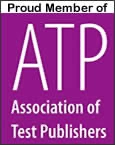2026 Edition
Marriage and Family Therapist Practice Test
Take this free Marriage Counseling Practice Test to study for your Marital and Family Therapy National Exam. Our MFT exam test prep is written by instructors in marriage and family counseling. For a comprehensive practic test, use our 500 question MFT Practice Exam. See the links below for free MFT flash cards and a video of the practice exam. For more free practice questions and test prep, try our NCE Practice Test and our NCMHCE Practice Test.






